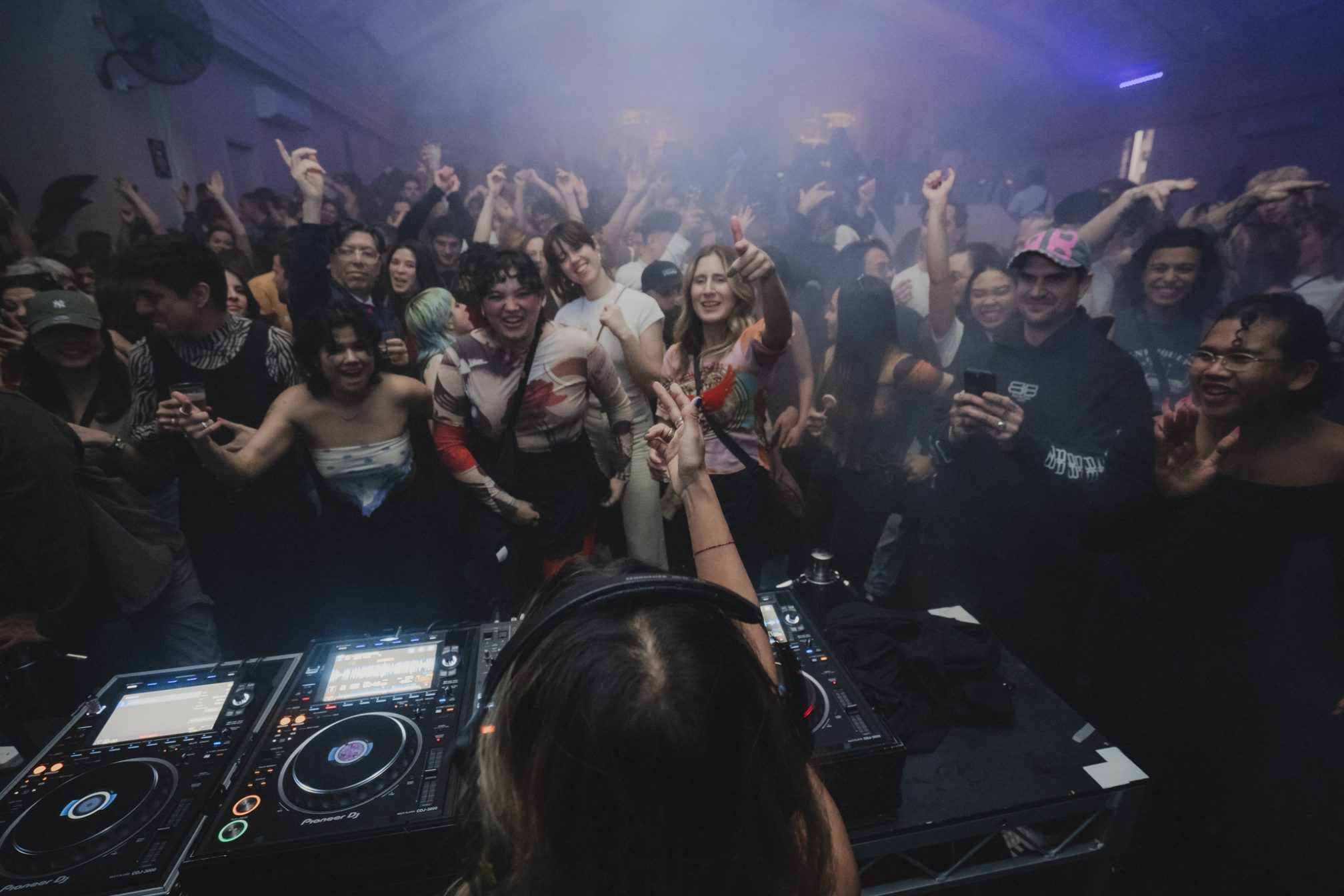 COMMENT
COMMENT
2024 Year in Review: Hyper-detailed, hyper-fast and hyper-connected
As we start to catch our breath, let's ask ourselves, "what did we really learn this year?"
2024 was pretty wild. Globally, it became progressively more cooked. Injustice was livestreamed as we watched genocide, WW3 became a legitimate threat as locals to Europe heard tips on bunker safety. Robots didn’t just vacuum floors, they vacuumed feelings, often becoming therapists asking valid questions like, “are you ok hun??” and then maybe going on to steal your job.
It was like humanity hit “Accept All Cookies” on a Black Mirror pop-up. 2024 taught us that Dystopia doesn’t need a sound check, it just goes live. For the electronic community, it marked another year of adapting to global and local challenges. But the community accepted the tempo change and remixed the setbacks – all for the love of the music.
But beyond our view, we wanted to hear what the community thought of the year that was. For Boorloo-based duo 2Lubly, made up of Miriwoong Gadjerong artist Lulkbudia, and Nhanda, Malgana and Yamaj artist Sarah, they saw underrepresented voices finally coming to the forefront, using their artistry to bring attention to important issues and lived experiences, encouraging meaningful conversations.
“First Nations and POC DJs are busting through glass ceilings and playing stages for worldwide events now (as they deserve and have worked hard for). They’re also shaping live experiences and what they look, feel and sound like” (Soju Gang’s siren remix at Boiler Room will not be forgotten).
“Many people can go out now and see themselves represented from the decks to the dancefloor, often gaining confidence to pursue their own creative dreams.”
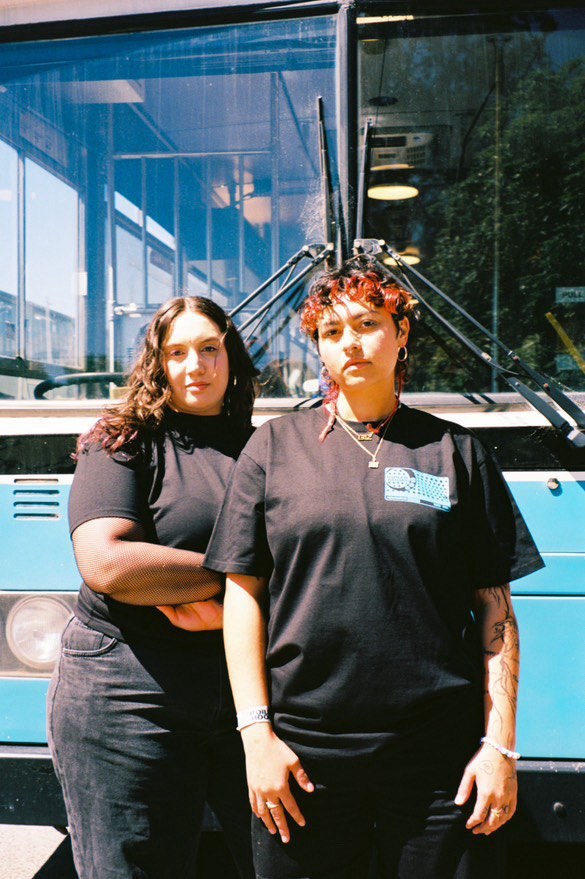
2Lubly (Boorloo/Perth)
Other marginalised groups took centre stage this year with banging parties like Chuleo Club and Clubhaus. Lina of Chuleo Club shared that local and international crowds have been craving places where they feel included and accepted.
“We saw the creation of awesome, inclusive spaces that celebrated vibrant sounds and brought the multicultural community of Narrm together. It was an amazing year for the queer scene, artists, and anyone looking for something unique. Event promotion became more about community and inclusivity, making sure everyone felt safe while partying and dancing and feeling the heat.”
Chicago-raised Mothafunk shared that dancers have taken a more prominent role in the vibe of an event. “I don’t mean just punters at the party, but those who really see the dance floor as a place of connection and expression. That’s why sets by Chris NG and DJ Jnett are so special with their crew of dancers that follow them, or Ron Trent at Northcote Theatre. I hope dancers become more considered, and that others take time to enjoy dance classes and connect with the dance community.”
Producer and promoter 3rd Orbit shared that local queer parties will no longer be successful just because they’re queer. “This is raising the bar of events, DJing and production, and that’s definitely a good thing.”
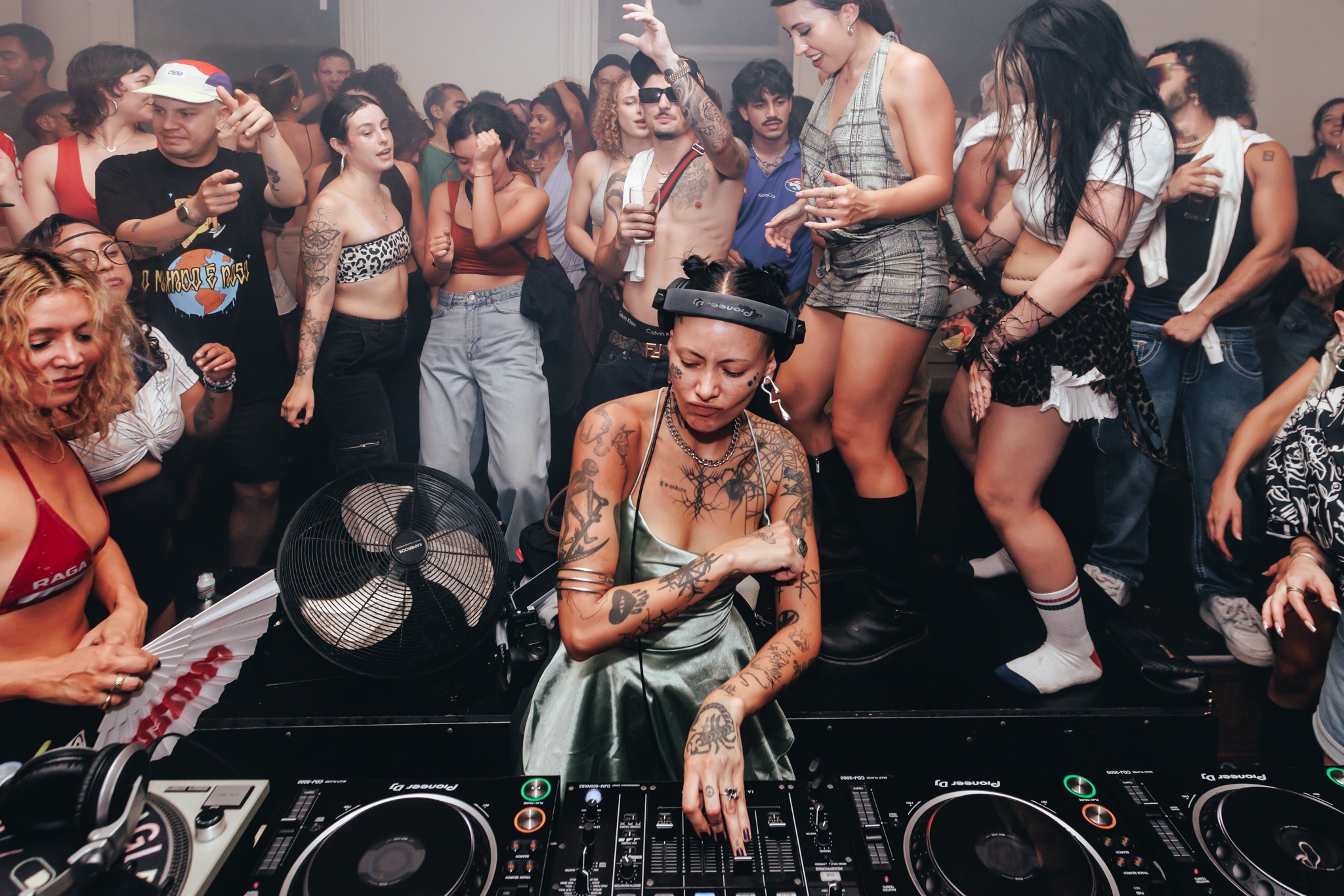
Chuleo Club (Naarm/Melbourne) photo: @duncographic
New collaborations and bridges were built to neighbouring regions, beyond the traditionally-prioritised regions like Europe and the USA. Australian-Indonesian artist Komang shared, “we’ve seen Indonesia-based Precious Bloom playing Meredith to bands and DJs like the Batavia Collective, Munir, Ali, Dita, PNNY Collective and many more coming here. As an Indonesian-Australian artist, I feel this used to be mostly a one way direction so I’m excited at it changing the opposite way — and it's the promoters, the advocates, the festivals, agencies but mostly the artists themselves, often independent, who have been putting in the yards to overcome challenges to be able to tour here (racially-charged visa application processes, anyone?).”
Komang spotlighted the collaborative relationship to broader Asia too. “I think people risk forgetting what’s right at our doorstep due to having a more Euro-centric approach to what good art and music should be. Local creatives often lament that we’re so far away from the ‘rest of the world’ when by ‘rest of the world’, they mean Europe, the UK and the US.”
Mike Who of Planet Trip Records also saw a greater appreciation and respect for local talent, seeing more acknowledgement of the importance of pushing and appreciating locals in your own city.
“Locals need the platforms to play at a peak time, not just warm up sets. Lots of crews and promoters have always followed this path to build proper communities and grass roots parties, and it’s amazing to see venues like Club 77 lean into this. They support locals and residents with 4 hour sets, two DJs a night, lights down low, haze and good sound being all that’s needed and that’s all I’m really interested in personally,” he shared. “I hope bigger promoters, larger venues and festivals consider this as the way forward, and can help keep ticket prices accessible for punters.”
Many people mentioned that large promoter agencies have made it more difficult for underground collectives and promoters to thrive. Will of Gallery Recs shared that dance music is at “a fever pitch right now with homegrown talent like DJ Plead, Kia, Pretty Girl and Sam Alfred inspiring producers everywhere. But independent labels and crews are battling – the competition is just too big and has far more coin in their pockets.”
Bubble UKG’s Coldpast agreed that locals are now competing with some of the largest touring companies in the world, noting that younger people are having to decide over a $70+ day ticket or supporting a smaller event, but not both.
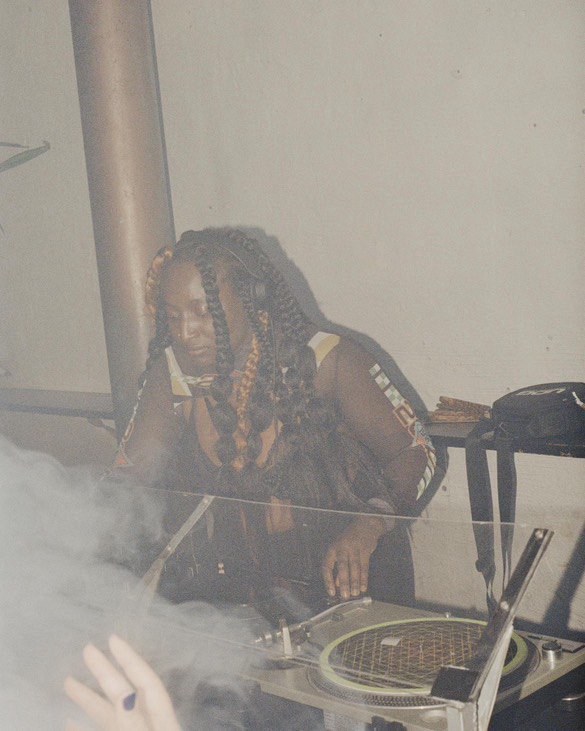
Ayebatonye - photo: nadeeemmy
“There’s a spotlight on these big production, festival-style city events. It draws a lot of young people in and can take people out of nightclubs every week. Often they just don’t have the money to pay for that and a club night,” he shared, but noted it’s not all gloom.
“In saying that though, I think it’s never been healthier to run events like UKG which is no longer an underground genre. We’re seeing a new generation of kids attend these larger events which is pushing some of them into ours, so it’s a bit of a Catch22. We’re also seeing these kids making new music we really like – it’s a challenge, but it’s rewarding. The parties are good, the vibes are good, and the community is strong.”
Eora-based bass king Monako echoed that challenge in seeing more large events, but sees a new trend in clubs focusing on more traditionally underground sounds. “I think nightclubs are catering to more non-commercial scenes as bookers make a more conscious effort to contribute positively to innovation and progression. There’s more of a general up-for-it-ness where audiences are more receptive now to left-field sounds,” he shared. Monako said he’s also excited about the welcomed shift in attitudes from the former nanny NSW government of the industry.
“There’s a huge amount of funding and support going to venues and artists from the government right now, repenting from the sins of the lockout laws of the last decade. We’re seeing new grants and local lobbying for legislation change to support the industry further.”
In terms of sound, many agreed that music is faster than before. Josh of Meanjin-based No Tomorrow and Kinda Cool Company witnessed hardgroove maturing, and hard techno booming, with genres like UKG, speed garage and 90s house-trance crossovers growing in popularity.
“The scene’s being a bit capitalised on but that’s meant there’s a greater need for storytelling, creativity and purpose. It’s definitely much harder for more authentic or underground communities to survive in a new landscape now where huge global brands and promoters are frequenting the scene here. But that means the hunt for deeper meaning and more unique sounds is seeing more creative and authentic events going deeper into the scene. I think this will be bigger in 2025.”
While music has become faster, arguably from an attention-frag society, that doesn’t necessarily mean it’s more heavy. 3rd Orbit noted that faster 145 is the new 130 — “but people are keeping it light, playful, but fast. And then 100bpm is getting more filthy. I want it in clubs, with dancefloors moving and grinding. It’s hot, sexy and needed.”
“I also think multi-genre is moving into production with multitudes of references, samples and vocal chops from across genres making their way into individual tracks,” they shared. “I think it’s exposing people to more sounds and genres they might not have experienced otherwise. In counterpoint, sets where dancers lock into one sound are getting more rare. The bass music scene is being filled with intricate percussion and dirty basslines keeping those who are aware of their ass moving whilst providing 4 kicks per bar.”
Many artists noted they’re still seeing the roll-on effects of a post-pandemic world, with 3rd Orbit sharing that, “traditional club culture is struggling, rave culture is thriving. Overheads and the need to continuously pander to any noise complaint are to blame for this. As a result, clubs need to fill Friday and Saturday night dancefloors with people who will buy alcohol all night. I don’t think people will hang around for a set that won’t push their boundaries and take risks to progress a sound.”
One half of Club Aqueous, DJ Bertie, shared a reminder that last minute tickets of a post-covid era are still a thing. “But now I think smaller collectives are finding value in collaboration, particularly when hosting an international act that aligns with both parties, or to simply share the costs to ensure artists get paid their worth,” she shared.
And as new dancers enter the scene, “those who didn’t spend their prime music and dance floor-exploring years will fill dancefloors again. I will say though, some of the best dancefloors I’ve been on lately have been quality over quantity. Crowds so vibey the energy is of one that’s completely full. Specifically those where minority communities and identities feel free to be.”
Char of Tangle Agency agreed the post-pandemic feels are still altering the landscape, but acknowledged there’s a silver lining. “I think our wealth of local talent has been far more championed recently, with a plethora of new parties and events finding more innovative ways to showcase artists. This year’s been a reminder that this scene always finds a way to thrive.”
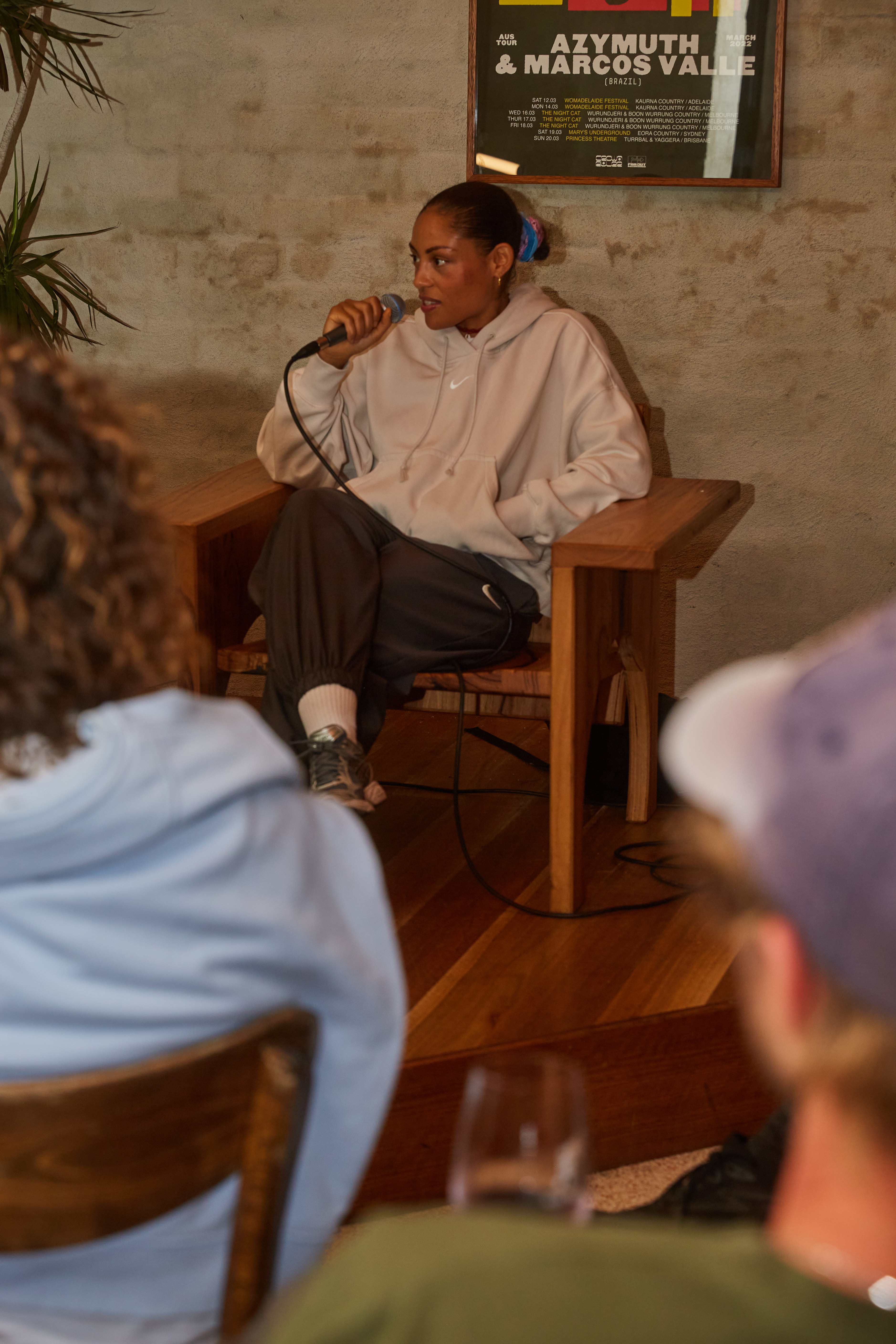
Suze Ijó @ High Note (Naarm/Melbourne) photo: @umut_rotation
And for many, a major highlight was the new trend of learning and sharing. Fluxx collective mama, producer and Platform and Logistics lead of Resident Advisor, Yollks, shared how community-led workshops took off as the scene shifted towards a more resource-sharing and learning ecosystem. “They’ve been popping up since lockdown but I think this year became more about working together and inspiring one another through these initiatives.”
Bars and small clubs became learning spaces — High Note saw events such as Polygonia dissecting a track with Tangela for Crown Ruler, while Bex’s Spacecast brought music and visual art together via a panel of painter Jaime Brohier and FHUO’s Louis McCoy.
“We saw Holy Trinity bring out artists like Zakia and Nabiha Iqbal to talk about their music and inspirations, and Willis Anne’s jam night where anyone can come plug in for a jam session,” Yollks shared. She reflected on D’shut, a short blessing that saw punk nights, art exhibitions and club events collide, creating spaces for artists like Claire O’Brien and Tangerine facilitating workshops for live production.
“The community aspect is special,” Yollks said. “And we’ve been blessed with new spaces too. There’s a certain level of care that goes into curating a space when a collective rooted in the community are behind it, as we’ve seen with Miscellania and the new opening of 3-story club Solace by local crew Static. That’s giving me high hopes for the future. Do I need to stop here?”
-
Sam Howard is a freelance writer, media consultant, afounder of Puff Studio, who DJs under 'Ham'. Find her on Instagram.


